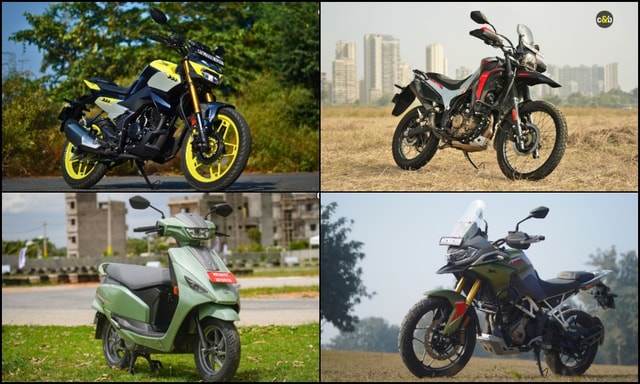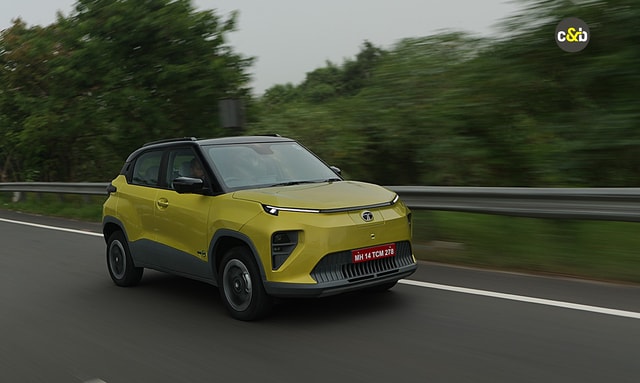Retail Price Of Petrol Has Increased By 73% In Last 13 Years Despite Crude Oil Price Falling 23%

- Today, in Delhi, petrol is Rs. 87.60/ litre, as against Rs. 50.63 in 2008
- Despite USD value rising 70%, crude oil price has dropped 23% since 2008
- Experts say this is because inflation hasn't been controlled properly
Rising fuel prices in India is one of the biggest problems that the country is facing, and there seems to be no end to it. Right now, in Delhi, the price of petrol stands at an all-time high of Rs. 87.60 per litre, while diesel is priced at Rs. 77.73 per litre. The same in Mumbai currently is Rs. 94.12 per litre and Rs. 84.63 per litre, respectively, the highest among all metros. While the daily revision of fuel prices, which is currently on an upward trajectory, is certainly a matter of concern, there are bigger issues that we need to address right now.

In Delhi, the price of petrol stands at an all-time high of Rs. 87.60 per litre, while diesel is priced at Rs. 77.73 per litre
Now, before we get into the details, one needs to understand how oil companies determine the retail price of petrol and diesel. Brands like Indian Oil Corporation, Bharat Petroleum, and Hindustan Petroleum revise fuel prices based on global benchmarks of crude oil rates, and the changes in the foreign exchange rates. And today, on February 10, 2021, the price of crude oil is $59.78 per barrel. However, if with go back about 13 years to July 2008, the price of crude oil was $132.47 per barrel, the highest-ever in the last 15 years. And back then, the price of petrol in India was Rs. 50.62 per litre and diesel was Rs. 34.86 per litre.
undefinedHow come more people aren't talking about this? And when I say talking, I mean crying bloody murder??! SVP #FuelPriceHike #PetrolDieselPriceHike @carandbike https://t.co/MCxsQZh4K3
— Siddharth Vinayak Patankar (@sidpatankar) February 9, 2021
A simple calculation will tell you that compared to July 2008, petrol prices today have increased by about 73 per cent, while diesel has become dearer by 122 per cent in the last 13 years. Now, if the price of crude oil in the US Dollar and fuel in India Rupee confuses you, then back in July 2008 the average exchange value of one US Dollar was Rs. 43, whereas today it's about Rs. 73. This means in July 2008 crude oil was priced at Rs. 5,696 per barrel, and today, it's priced at Rs. 4,364 per barrel, which mean it has come down by over 23 per cent compared to 13 years ago. And this is a big difference, and a huge matter of concern, as it shows the high level of taxation on petrol and diesel in India. We did reach out to the country's largest oil marketer, Indian Oil, for a comment on this however, at the time of publishing this story, our e-mail still remained unanswered.

In July 2008 crude oil was priced at Rs. 5,696 per barrel, and today, it's priced at Rs. 4,364 per barrel, down by 23 per cent
Talking the massive rise in fuel prices, auto industry expert and Co-founder of brand strategy consultancy Expereal, Avik Chattopadhyay said, "This is an outcome of the following reasons. One, taxing fuel is a sure source of revenues, even if other sources fail. Second, whenever other sources fail, fuel is taxed to cover up the shortfall and third, all governments have been poor at controlling inflation; in fact, some economists believe that inflationary trends are good for long term growth. The government will give an excuse for high fuel prices being a pressure on people to adopt more green mobility alternatives. But then there is not a single alternative that has pan India reach and reliability of supply."

The Union Budget for the Financial Year 2021-22 did not offer any reduction of direct taxes
Fuel prices in India have been witnessing an upward revision since early January 2021, after remaining stagnant for over a month. While consumers and industry stakeholders were expecting some kind of relief or lowering of taxes, sadly the Union Budget for the Financial Year 2021-22 did not have any new announcements regarding the reduction of direct taxes. Additionally, nor did the government introduce any move to further push e-mobility, like lowering import duties on electric vehicles, which would have prompted more consumers to adopt EVs.
Latest News
 car&bike Team | Mar 2, 2026Yezdi Roadster Red Wolf Launched at Rs 2.10 LakhYezdi has expanded the Roadster line-up with a new Red Wolf colourway, now the most premium shade in the range.1 min read
car&bike Team | Mar 2, 2026Yezdi Roadster Red Wolf Launched at Rs 2.10 LakhYezdi has expanded the Roadster line-up with a new Red Wolf colourway, now the most premium shade in the range.1 min read car&bike Team | Mar 2, 2026BMW M2 M Performance Kit Revealed: New Aero Package, Upgraded Suspension, Lighter ExhaustBMW has introduced a Performance kit for the M2, which includes a host of aerodynamic components.2 mins read
car&bike Team | Mar 2, 2026BMW M2 M Performance Kit Revealed: New Aero Package, Upgraded Suspension, Lighter ExhaustBMW has introduced a Performance kit for the M2, which includes a host of aerodynamic components.2 mins read car&bike Team | Mar 2, 2026Two-Wheeler Sales February 2026: Hero MotoCorp, TVS, Honda, Bajaj Auto Report Positive GrowthMajor brands have shown remarkable sales in the second month of 2026.3 mins read
car&bike Team | Mar 2, 2026Two-Wheeler Sales February 2026: Hero MotoCorp, TVS, Honda, Bajaj Auto Report Positive GrowthMajor brands have shown remarkable sales in the second month of 2026.3 mins read car&bike Team | Mar 2, 2026Tata Motors To Offer Mobile Vans For Doorstep Charging In Delhi NCRThese vans will benefit EV owners who do not have a fixed charging spot or do frequent relocations.1 min read
car&bike Team | Mar 2, 2026Tata Motors To Offer Mobile Vans For Doorstep Charging In Delhi NCRThese vans will benefit EV owners who do not have a fixed charging spot or do frequent relocations.1 min read Bilal Firfiray | Mar 2, 2026New Mercedes-Benz V-Class Vs Toyota Vellfire: The Luxury Van ShowdownNew V-Class is here after a long hiatus. And it’s aiming squarely at the Toyota Vellfire in the luxury MPV space. So let us break down design, comfort, features, powertrains and real-world usability to help you choose the right one.5 mins read
Bilal Firfiray | Mar 2, 2026New Mercedes-Benz V-Class Vs Toyota Vellfire: The Luxury Van ShowdownNew V-Class is here after a long hiatus. And it’s aiming squarely at the Toyota Vellfire in the luxury MPV space. So let us break down design, comfort, features, powertrains and real-world usability to help you choose the right one.5 mins read Jafar Rizvi | Mar 2, 2026Yamaha XSR 155 Prices Hiked; New Colour IntroducedPrices for the XSR 155 now range between Rs 1.50 lakh and Rs 1.59 lakh (ex-showroom).1 min read
Jafar Rizvi | Mar 2, 2026Yamaha XSR 155 Prices Hiked; New Colour IntroducedPrices for the XSR 155 now range between Rs 1.50 lakh and Rs 1.59 lakh (ex-showroom).1 min read
 Bilal Firfiray | Feb 28, 2026Tata Punch EV Facelift Review: More Range, More Sense, Less MoneyThe Tata Punch EV facelift gets a bigger 40 kWh battery, faster 60 kW DC charging, improved thermal management, and better real-world range, and all of that at a lower introductory price. But does it become a more complete package now?6 mins read
Bilal Firfiray | Feb 28, 2026Tata Punch EV Facelift Review: More Range, More Sense, Less MoneyThe Tata Punch EV facelift gets a bigger 40 kWh battery, faster 60 kW DC charging, improved thermal management, and better real-world range, and all of that at a lower introductory price. But does it become a more complete package now?6 mins read Preetam Bora | Feb 24, 2026Hero Destini 110 Review: Simplicity, RefinedThe Hero Destini 110 is a no-nonsense commuter that is simple, comfortable and above all, fuel efficient. In 2026, when buyers are spoilt for choice, is it good enough to consider?1 min read
Preetam Bora | Feb 24, 2026Hero Destini 110 Review: Simplicity, RefinedThe Hero Destini 110 is a no-nonsense commuter that is simple, comfortable and above all, fuel efficient. In 2026, when buyers are spoilt for choice, is it good enough to consider?1 min read Preetam Bora | Feb 23, 2026TVS Apache RTX Road Test Review: Redefining the Entry-Level ADVAfter spending some time with the TVS Apache RTX in traffic, the daily commute, as well as on open highways, one thing becomes clear: the RTX is trying to redefine the entry-level ADV segment. But is it without fault?1 min read
Preetam Bora | Feb 23, 2026TVS Apache RTX Road Test Review: Redefining the Entry-Level ADVAfter spending some time with the TVS Apache RTX in traffic, the daily commute, as well as on open highways, one thing becomes clear: the RTX is trying to redefine the entry-level ADV segment. But is it without fault?1 min read Girish Karkera | Feb 20, 2026Road Test: 2025 VinFast VF7 AWD Sky InfinityFlagship all-electric SUV from the Vietnamese car maker gets most of the basics right.1 min read
Girish Karkera | Feb 20, 2026Road Test: 2025 VinFast VF7 AWD Sky InfinityFlagship all-electric SUV from the Vietnamese car maker gets most of the basics right.1 min read Jaiveer Mehra | Feb 18, 2026New BMW X3 30 Vs Mercedes-Benz GLC 300: Midsize Luxury SUV FaceoffWith the new X3 30, BMW has a direct competitor to the petrol GLC 300, but which is the luxury SUV for you?1 min read
Jaiveer Mehra | Feb 18, 2026New BMW X3 30 Vs Mercedes-Benz GLC 300: Midsize Luxury SUV FaceoffWith the new X3 30, BMW has a direct competitor to the petrol GLC 300, but which is the luxury SUV for you?1 min read























































































































